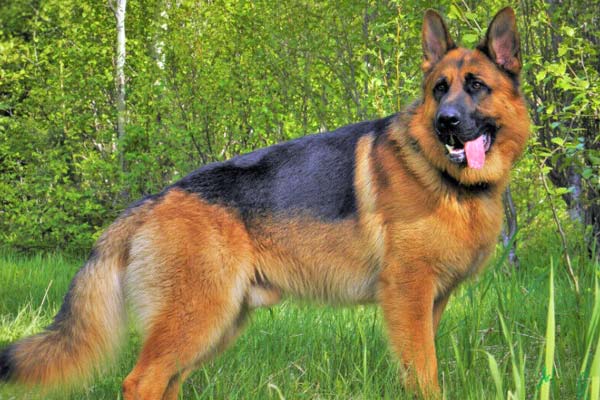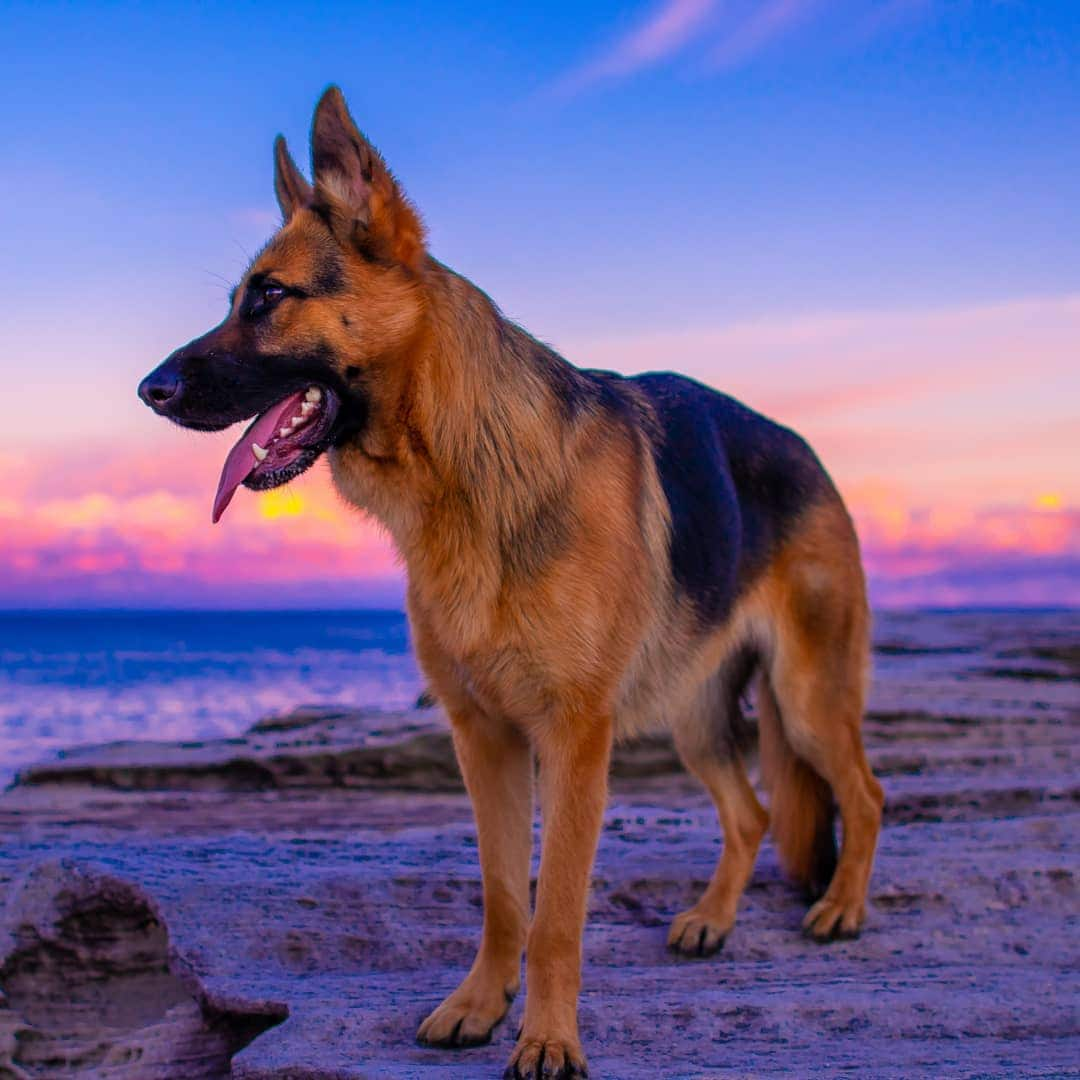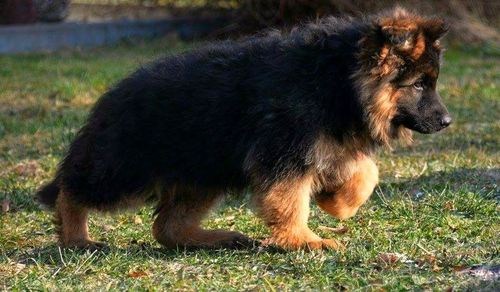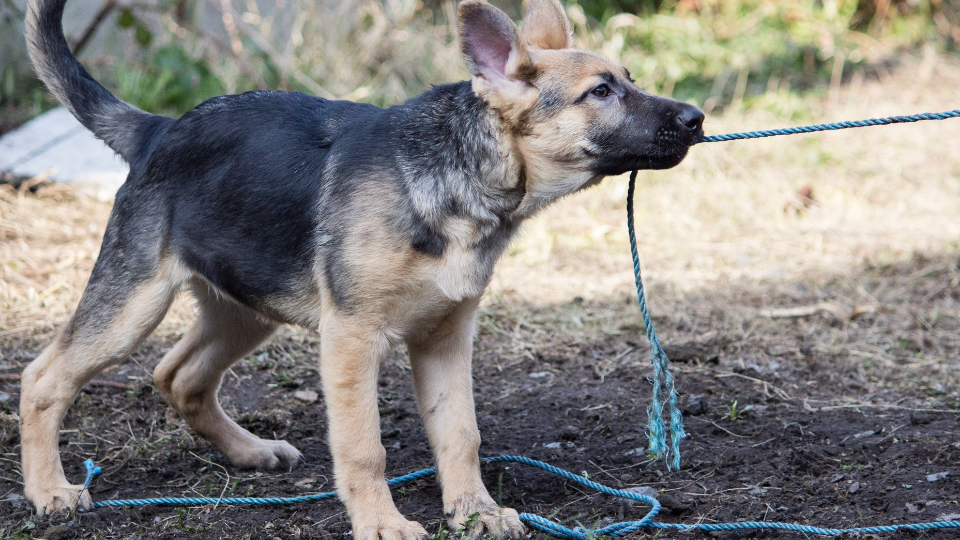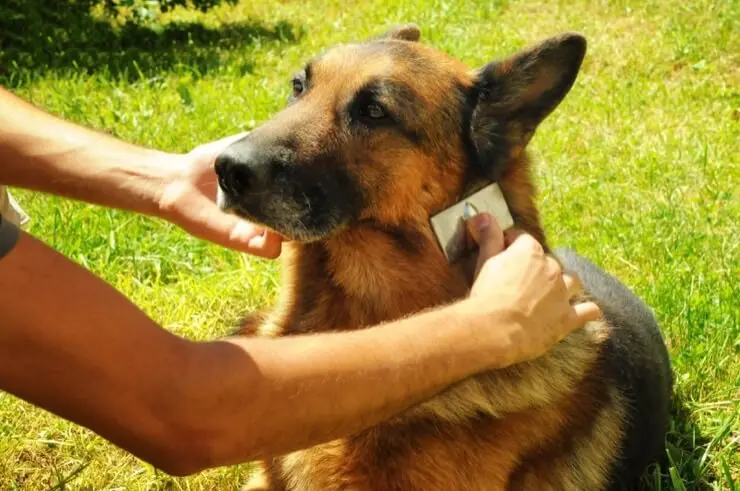Black Russian Terriers are one of the most expensive dog breeds money can buy, with an average price of $2,000. This large breed has an average life span of 10 to 11 years, and professional grooming costs average $105. Also, plan to pay approximately $6,000 for potential health care costs to manage common orthopedic and eye problems. Yorkshire Terriers — Yorkies for short — cost an average of $600 to purchase and have an average life expectancy of 13 to 16 years.
We are Cornfield's Kennels and are the importers and the only breeders of Olderhill german shepherd puppies in SA. Many people use the name Olderhill to describe dogs with flat backs but this is not correct. It is a specific bloodline of the old-type working german shepherds. The Old English Sheepdog is an excellent watchdog that's great with kids.
GOBankingRates conducted a study to find out which 30 breeds are the most expensive dogs to own. Factors that were considered included the dog's purchase price, grooming expenses and potential health care costs for common issues faced by the breed. We conducted a study to find out which 30 breeds are the most expensive dogs to own. Perfect for city living, these small dogs don't need a lot of exercise, and grooming costs average an affordable $35.
Due to a number of serious health concerns, however, this breed has an average life expectancy of nine to 12 years with potential health care costs averaging about $4,300. One of the most expensive dog breeds to own because of its $1,600 average purchase price, the Miniature Bull Terrier is a small dog with a lot of energy. These dogs have an average life expectancy of 12 to 14 years and cost approximately $50 to groom. Traditionally used as herding dogs, German Shepherds are gentle, good-tempered dogs with an average price tag of $1,150.
But their sky-high potential medical costs of $20,500 to treat common conditions like hip dysplasia and perianal fistulas make them one of the most expensive dog breeds to own. The Ibizan Hound's steep $1,300 average purchase price makes it one of the most expensive dogs to own. This dog breed has an average life expectancy of 12 to 14 years and both of its coat types — smooth and wire — are easy to groom, costing an average of $25. Grooming these family-friendly pets costs around $55, and their life expectancy typically ranges from 12 to 14 years.
While the breed is generally healthy, average potential medical expenses total $3,000 due to common health issues such as hip dysplasia and gastric dilatation volvulus. The cost to groom this 70 to 120-pound dog runs around $75. The Bedlington Terrier has an average purchase price of $1,500, and potential health care costs average $3,700, making it one of the most expensive dogs to own.
Known as a great watchdog, the Tibetan Mastiff's standard grooming costs average about $70 per professional visit. Their life expectancy averages 10 to 12 years, and medical expenses can reach around $3,000 due to common health issues like hip dysplasia, autoimmune thyroiditis, seizures and more. Initially bred to hunt vermin in Northern England, the Lakeland Terrier is a smaller breed with an average price tag of $1,100. Thanks to its show dog status, the Cavalier King Charles Spaniel is one of the most expensive dog breeds to buy. The average purchase price for this dog comes out to $1,250.
But grooming them is relatively easy, with an average price tag of $55. This large breed has an average life expectancy of 12 to 14 years and standard grooming costs of $35. Potential health care costs to treat hip dysplasia and deafness — conditions that commonly impact the breed — total $1,600. In one study, the effect of breed on longevity in the pet dog was analyzed using mortality data from 23,535 pet dogs. The data were obtained from North American veterinary teaching hospitals.
The median age at death was determined for purebred and mixed-breed dogs of different body weights. Within each body weight category, the median age at death was lower for purebred dogs compared with mixed-breed dogs. The median age at death was "8.5 years for all mixed breed dogs, and 6.7 years for all pure breed dogs" in the study. When humans select certain dogs for new breeds, they artificially isolate that group of genes and cause more copies of that gene to be made than might have otherwise occurred in nature. The population is initially more fragile because of the lack of genetic diversity. If the dog breed is popular, and the line continues, over hundreds of years diversity increase due to mutations and occasional out-breeding.
This is why some of the very old breeds are more stable. One issue is when certain traits found in the breed standard are associated with genetic disorders. The artificial selective force favors the duplication of the genetic disorder because it comes with a desired physical trait.
Buying a Chow Chow of your own will cost approximately $900. And grooming costs for this medium-sized dog average a pricey $90. Chow Chows have a life expectancy of 12 to 15 years, and typical health care costs could total $11,000. The Rottweiler is a large breed that costs approximately $1,600 to buy. Characterized as alert, obedient and devoted, expect to spend an average of $36 grooming these short-haired dogs.
A number of health concerns make Rotweilers expensive dogs to own as well, with possible minimum health care costs averaging about $7,800. These medium-sized, energetic dogs enjoy long walks and have modest grooming needs, costing approximately $47.50 for each trip to the dog spa. If you buy a fairly healthy breed with a life expectancy of 12 to 14 years, prepare to potentially pay around $3,500 to care for general health issues. The Afghan Hound is a large dog that costs about $1,000 to purchase from a breeder. Characterized by their long, glamorous coats, these elegant dogs require daily hair combing.
And professional grooming costs average $65 per trip — a major contributing factor to their status as one of the most expensive dogs. These dogs shed during the spring and fall, and you can expect to pay around $62 each time they're groomed. Akitas are prone to a variety of health issues — including hip dysplasia, knee injuries and skin diseases — bringing average possible health care costs to $4,500. Purebred Ibizan Hounds have a low risk of developing hip dysplasia and a medium risk of going deaf, bringing potential health care costs for common issues to an average of $1,600.
Pups have been wormed regularly and will be vet checked, vaccinated, microchipped before leaving for their forever homes. All pups will be well socialized, and come with VCA registration, puppy pack, GSDCV 4 weeks puppy training at a local branch near you. German Shepherd puppies out of imported lines and original straight backs.
We have been registered breeders for over 25 years and have imported numerous dogs into the country to expand the working dog gene pool. All our breeding dogs have been cleared and officially passed hip and elbow scoring. The puppies will come with Dogs Victoria limited registration papers, 1st vaccination, de-wormed, microchipped and Vet health checked. These puppies raised correctly will suit all types of homes ranging from family guardians to Police service dogs. They are the most common pets since they offer more than protection to human beings. The wave of owning a dog has created an opportunity for breeders; hence, in this era, it is easier to possess exotic breeds.
However, before making a purchase, you might want to peruse through the prices of the most expensive dog breeds. That way, you will be more informed on how much you might need to part with. A rare breed that costs approximately $1,150 to purchase, the Samoyed is known to be kind, loving and eager to please.
Its thick, white coat usually requires brushing two or three times weekly, and professional grooming costs average $60 per visit. These dogs cost an average of $48 to groom and are great for families with kids. They have an average life expectancy of just eight years and are at a high risk for many health concerns, which makes them one of the most expensive dogs to have.
This dog breed has an average life expectancy of nine to 14 years and is susceptible to a host of health conditions, bringing potential medical costs to $1,350. This Royal Canin dog food is dry in texture and it is ideal for German shepherd puppies. It contains antioxidants and nutrients that promote a healthy immune system. Its kibble-shaped design also encourages chewing and it is fit for a German shepherd's long muzzle. This dog food can be fed to puppies which are 8 weeks to 15 months old. We have some beautiful Short coat females available to approved homes from our current litter ready to leave home from 5/10.
Dad is the stunning import Wulkano-Uno v Schnitzerteam and mum is Maerceci Winter Soleil . Both parents are breed surveyed and have hip and elbow passes. These details of the most expensive dog breeds highlight how profitable the breeding business can be.
Note that this information is subject to change as new breeds may occur, and prices may change. It is also essential to mention that for maximum returns, you ought to go the extra mile to take excellent care of your pets. As always, it's important to only consider German Shepherd Dog puppies for sale from experienced and professional breeders, that you can trust have raised them well. This is a breed where you want a bloodline that is healthy, and has the right even tempered nature, neither timid or aggressive. Please don't take chances on a random breeder with a decision so important. Find your ideal German Shepherd from Euro Puppy, we have been working with the best breeders for many years so you can enjoy total peace of mind that you will get the perfect puppy.
Some US dog owners interested in Schutzhund choose to import a puppy from old European working lines. Flying a 2-3 month old puppy across the Atlantic costs up to $2,000 – and that is on top of the purchase price of a puppy. A pup from high-achieving parents might already be $2,000 – which puts you at $4,000 by the time the dog arrives in the US. While this might sound insanely high for a pet dog owner, for Schutzhund enthusiasts it is a typical price for a pedigreed German Shepherd pup.
In recent years, a few breeders have produced so-called "Miniature German Shepherds". Breeders of Miniature German Shepherds charge extremely high prices for their puppies, starting at $2,000 and ranging up to $4,500 for the smallest dogs. It is important to note that there is no such breed as a Miniature German Shepherd registered with the AKC. Once more, be certain to not decide on your future dog based on looks alone. A stable temperament and good health is much more integral than a certain size or weight.
Breeding dogs is a lot more than simply pairing two adults of the same breed, raising the puppies and selling them. Six german shepherd puppies have reported for duty at the NSW Police Force Dog Unit. Several studies have shown that mixed-breed dogs have a health advantage over purebred dogs. A German study finds that "mongrels require less veterinary treatment". Data from Denmark also suggest that mixed breeds have higher longevity on average compared to purebreds.
A British study showed similar results, but a few breeds lived longer than mixed breeds. Starting in 2007, genetic analysis has become available to the public. The companies claim their DNA-based diagnostic test can genetically determine the breed composition of mixed-breed dogs. The tests do not test for breed purity, but for genetic sequences that are common to certain breeds. With a mixed-breed dog, the test is not proof of purebred ancestry, but rather an indication that those dogs share common ancestry with certain purebreds.
The American Kennel Club does not recognize the use of DNA tests to determine breed. Potential health care costs of common issues included the minimum total of all common conditions in each dog breed as specified by Embrace Pet Insurance. A gentle giant, the Irish Wolfhound is one of the most expensive dog breeds to buy and own, with an average price tag of $1,900.
Medical expenses are the main reason Saint Bernards are such expensive dogs, with potential health care costs hovering at approximately $8,600. This breed has an average life expectancy of 10 to 14 years and is predisposed to health conditions like cataracts and hypothyroidism, causing possible health care costs to total $2,900. An Argentinian big-game hunter and guardian breed, the Dogo Argentino makes the most expensive dog list because of its hefty average purchase price of $1,200. This large breed has an average life expectancy of 11 to 14 years and is generally in good health, with possible health care issues costing approximately $1,500 to treat. Grooming costs for this short-haired breed also average a low $27.
If you can't afford a quality German Shepherd right now, don't worry. You'll have time to build your savings, as most breeders of good pups only breed a few litters each year. Finding a breeder may take several weeks of research, as well.
Expect to pay a non-refundable deposit to get on a waiting list. Much of what you can do to keep your dog happy and healthy is common sense, just like it is for people. Watch her diet, make sure she gets plenty of exercise, regularly brush her teeth and coat, and call us or a pet emergency hospital when something seems unusual (see "What to Watch For" below).
Be sure to adhere to the schedule of examinations and vaccinations that we recommend for her. This is when we'll give her the necessary "check-ups" and test for diseases and conditions that are common in Shepherds. Another very important step in caring for your pet is signing up for pet health insurance.
There will certainly be medical tests and procedures she will need throughout her life and pet health insurance will help you cover those costs. One of the best things you can do for your Shepherd is to have her spayed . In females, this means we surgically remove the ovaries and usually the uterus, and in males, it means we surgically remove the testicles. Spaying or neutering decreases the likelihood of certain types of cancers and eliminates the possibility of your pet becoming pregnant or fathering unwanted puppies.

